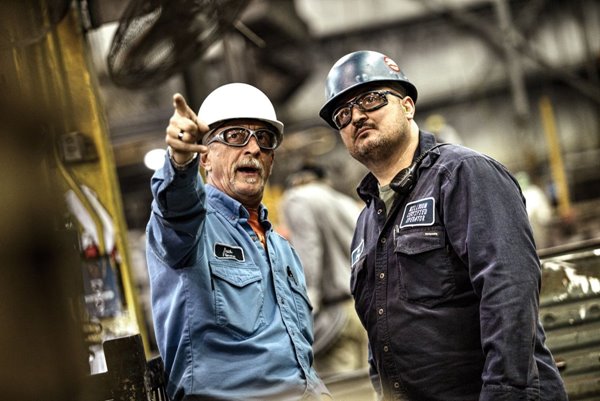Volkswagen AG, General Motors and Ford Motor Co. said through spokespeople that the situation has not materially affected production at their Mexican plants but that logistics operations are under pressure to adjust.
"Truck shipments, primarily service parts, were impacted by the bridge closing. We have re-routed and re-prioritized shipments accordingly, until the bridge reopens," Jeannine Ginivan, senior manager for corporate communications at Volkswagen Group of America, wrote in an email.
Authorities are gradually resuming more cargo processing at the downtown World Trade Bridge as conditions allow, but most cargo still is being diverted 19 miles outside the city to the Colombia-Solidarity Bridge. Some shippers also are expected to route cargo through other checkpoints on the southwest border.
On Wednesday, U.S. Customs and Border Protection opened downtown inspection lanes to motor carriers hauling cargo for auto industry customers.
A week ago, the agency re-established cargo processing at the World Trade Bridge for trusted shippers in the Customs-Trade Partnership Against Terrorism (C-TPAT) and a related program.
C-TPAT is a voluntary program that promises fewer container inspections for participating importers that have implemented approved security controls throughout their supply chain and use logistics partners that adhere to their security plan.
The Free and Secure Trade (FAST) program is a component of C-TPAT designed to speed clearance of commercial vehicles carrying low-risk C-TPAT shipments at land borders. Participation in FAST requires manufacturers, carriers, drivers and importers be certified under C-TPAT, a process that includes on-site validation visits by customs specialists.
U.S. and Mexican customs said they have established temporary coordinated inspection operations at CBP facilities in Laredo to enable three FAST processing lanes.
The agencies also are processing empty tractor-trailers, which pose less of a smuggling threat, at the World Trade Bridge.
The Colombia-Solidarity Bridge normally handles a tenth of the commercial traffic of the downtown crossing. The resulting cargo shift led to queues of trucks that waited several hours to reach inspection booths at the customs plaza during the first couple of days.
The brunt of delays was felt by drayage companies -- the trucks that shuttle cargo across the border within the regulated 20-mile border zone -- and motor carriers on the American side that had to wait longer at warehouses to reload the cargo before they could head to inland destinations, said Esteban Zavala, director of southern border customs operations for third-party logistics provider Livingston International.
Some customers came close to having plant shutdowns in Mexico because southbound traffic also was delayed.
"There were some close calls," he said.
Customs authorities are working overtime, from 7 a.m. to midnight or beyond, at both bridges to keep trade flowing. Both agencies also are working 24-hour shifts at the Colombia-Solidarity checkpoint for handling southbound shipments to Mexico.
CBP is encouraging the trade community to maximize the hours between 8 and 11 a.m. for crossing goods because traffic is much lighter then.
The heavy storms and flash floods that hit Laredo were a 50-year event that left CBP's cargo processing facility in disrepair, with extensive structural and water damage. Mexican customs offices suffered extensive damage as well, according to joint government updates.
The General Services Administration, essentially the landlord for U.S. government property, is assessing the damage sustained by the Laredo facility. CBP said it is unable to project when all repairs will be complete

